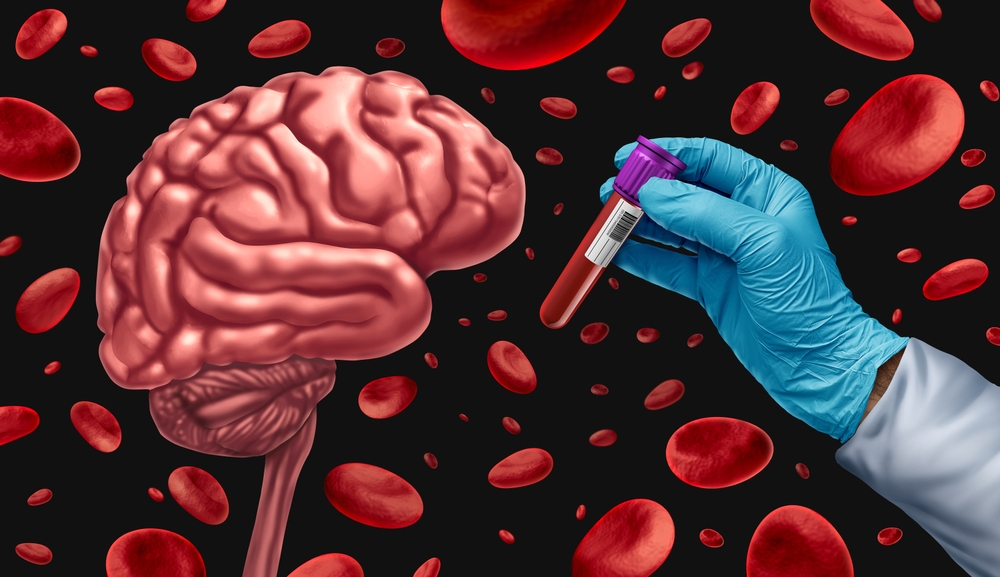The first blood test for Alzheimer’s has been approved in the USA, paving the way for earlier diagnosis and preventive treatment of the disease, FierceBiotech reported.
The FDA has now green-lit the Lumipulse G test, developed by Fujirebio Diagnostics, for patients aged 55 and over who exhibit signs or symptoms of Alzheimer’s. Used alongside clinical information, it can help differentiate between patients with Alzheimer’s and those with other forms of dementia.
Up till now, detection of biomarkers for Alzheimer’s has been possible only through costly PET scans or invasive cerebrospinal fluid sample tests.
Howard Fillit, co-founder and Chief Science Officer of the Alzheimer’s Drug Discovery Foundation (ADDF), said: “The ability to diagnose Alzheimer’s earlier with a simple blood test, like we do for cholesterol, is a game changer, allowing more patients to receive treatment options that have the potential to significantly slow or even prevent the disease.”
In vitro Alzheimer’s test
The Lumipulse G test measures the ratio between two proteins in the blood – pTau-217 and beta amyloid 1-42 – to assess the likelihood of finding build-ups in the brain of the amyloid plaques that are understood to play a central role in the progression of the disease.
A clinical study of the test evaluated almost 500 plasma samples of adults showing signs of cognitive impairment, and compared results against CSF tests or PET scans. It found that 91.7% of positive blood test results were confirmed as correct, as were 97.3% of negative results, with fewer than 20% of patients receiving indeterminate results.
The new test is the first in vitro kit to achieve 510 (k) clearance. Other companies have developed blood-based tests for a range of Alzheimer’s biomarkers, but these are lab-developed rather than in vitro so have not gone through the same rigorous validation and approval process.
An earlier version of the Lumipulse G test that measured two beta amyloid proteins in samples of cerebrospinal fluid obtained de novo clearance in May 2022.
Increasing accessibility for Alzheimer’s testing
Alzheimer’s disease affects more than 40 million people globally, making it one of the most pressing health challenges today. By 2040, numbers of patients are expected to double, with health and care costs likely to exceed $760 billion in the US alone.
Detecting and treating Alzheimer’s early or before symptoms appear has long been regarded as the next frontier in combating the disease. At least 155 million people globally are estimated to be presymptomatic for Alzheimer’s – more than three times the number of people who exhibit symptoms.
Michelle Tarver, director of the FDA’s Center for Devices and Radiological Health, said: “Today’s clearance is an important step for Alzheimer’s disease diagnosis, making it easier and potentially more accessible for U.S. patients earlier in the disease.”
Novel Alzheimer’s treatments
Howard Fillit of the ADDF described the Lumipulse G test as “a clear example of the new era of Alzheimer’s research where innovation, science and technology come together to develop more accessible, affordable and scalable tools that will pave the way for additional regulatory approvals of diagnostic tools.”
The market for disease-modifying therapies – rather than those that merely treat symptoms – is expected to reach $13 billion by 2030, with further growth possible from drugs attacking earlier stages of the disease, according to a report from Bloomberg Intelligence.
So far, anti-amyloid antibodies – such as Leqembi – are the only disease-modifying therapies approved for use and could reshape the Alzheimer’s treatment landscape. However, the report’s authors note that amyloid reduction when the disease has progressed comes with challenges, claiming that diagnosing the disease earlier coupled with treatments able to prevent protein aggregation, is the next frontier.
“The next goal is to treat patients before symptoms appear, a global population estimated at more than 155 million — more than three times that of people who exhibit signs of Alzheimer’s dementia,” the report said.
At Arctic Therapeutics, we are committed to developing novel and transformative medicines to create a better future for people in critical need of new treatment options. Find out more about our treatment for rare and common forms of dementia here.

